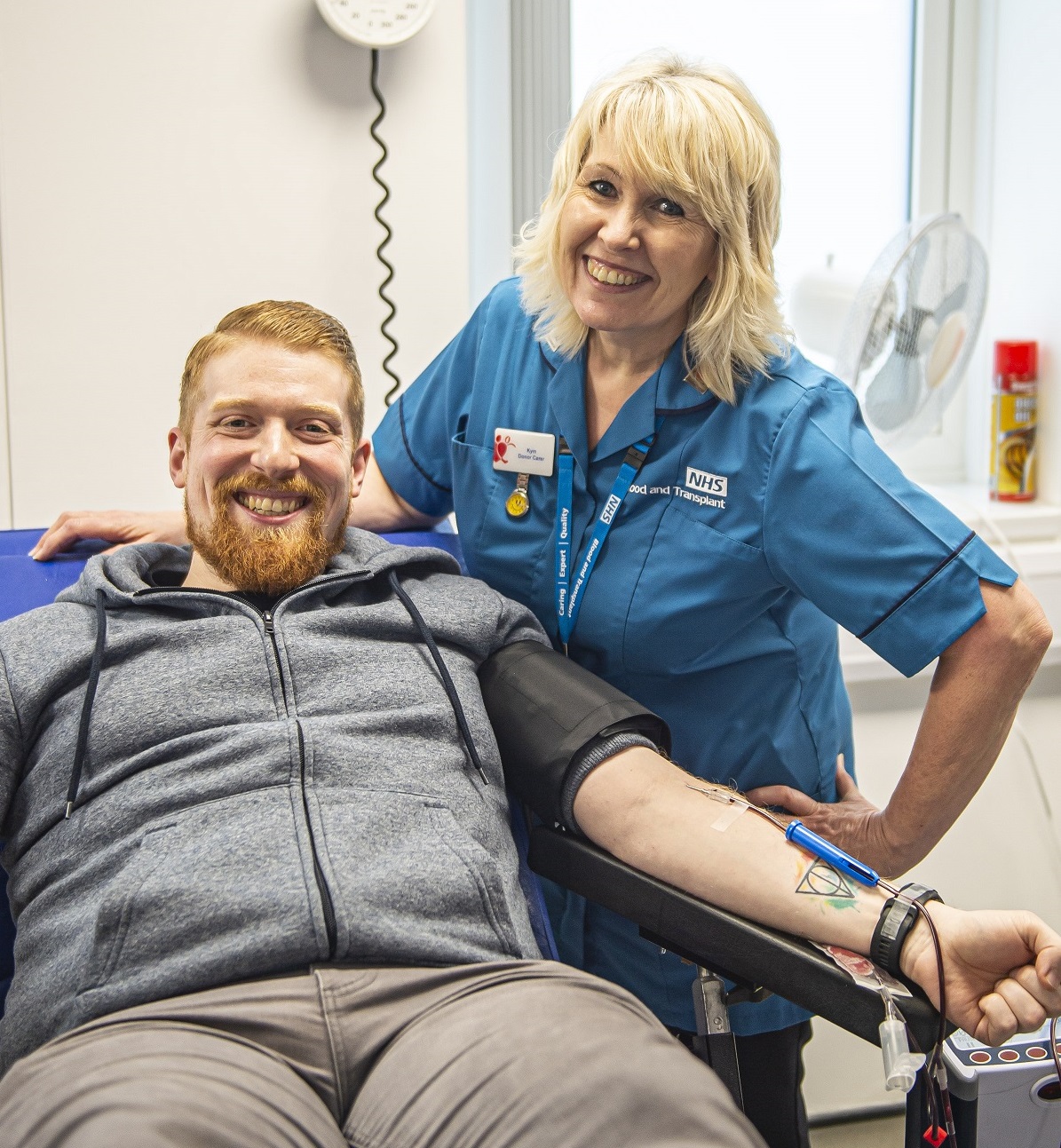Why men make good blood donors
Iron levels and the absence of some antibodies help make men good donors
David is the most common name among male blood donors, NHS Blood and Transplant has revealed, to support its campaign for more men to start donating blood.
There are 354,000 men in England who regularly donate and David is top of the names list, with 10,530 donors. Next comes Andrew, with Paul, Michael and John completing the top five (1, 2).
 David Palman, 34, from Southampton, is one of England’s lifesaving Davids. He started giving blood in 2018 after seeing an appeal for new donors.
David Palman, 34, from Southampton, is one of England’s lifesaving Davids. He started giving blood in 2018 after seeing an appeal for new donors.
“I’d always been wary of needles but I realised I ticked the boxes to be a blood donor so I felt it shouldn’t stop me doing it,” said David, who works for a company providing employee benefit packages.
“Giving blood is a brilliant way to do a good deed. It’s not painful and it’s over before you know it.
“The text telling you where your donation has gone is the best part. Knowing your blood is doing some good, even saving a life, really drives home how amazing blood donation is.
“For anyone who is a bit unsure, I’d say there’s no reason to worry. You’re well looked after and the staff are so good at putting you at ease. You could always take a friend along with you.”
David, who gives blood at Southampton Donor Centre, said: “It’s easy to book an appointment online and the donor centre is so convenient. Plus there’s free biscuits and squash – what’s not to like?”
The name David is number one among male donors aged 45 and over and among men who donate at 17 of the 23 permanent donor centres (3, 4). Among male donors aged 44 and under, James leads the way, followed by Daniel, Matthew, David and Thomas (5).
NHS Blood and Transplant has revealed the data as part of its appeal for more young men to start giving blood in 2020. More than 68,000 new male donors are needed to correct the gender imbalance among new donors.
During 2019, for every 100 women who started giving blood, only 70 men did the same. Only 41 percent of new donors were men last year.
This is a concern because only men’s blood can be used for some rare transfusions and specialist blood products (6,7). Also, men have higher iron levels which means they can donate more often and are less likely to be deferred.
Mike Stredder, Director of Donor Experience for NHS Blood and Transplant, said: “We’re incredibly grateful to all the Davids who save and improve lives through blood donation.
“We need more men to start donating in 2020. Your blood will do extraordinary things - whether you are a David or not. Please register and book an appointment to donate.”
Firstly, they have higher iron levels, so they’re also less likely to be deferred for low haemoglobin. That is crucial for helping to maintaining a strong donor base, especially for patients who receive many hundreds or thousands of transfusions over their lifetime.
Secondly, women can produce antibodies during pregnancy, even during short pregnancies they don’t even knew about. Antibodies are part of the body’s defence system and they make transfusions more difficult. This means only men’s blood is used for some specialist transfusions and blood products.
To get involved, you can register to give blood today and book an appointment at one of our 23 dedicated blood donor centres.